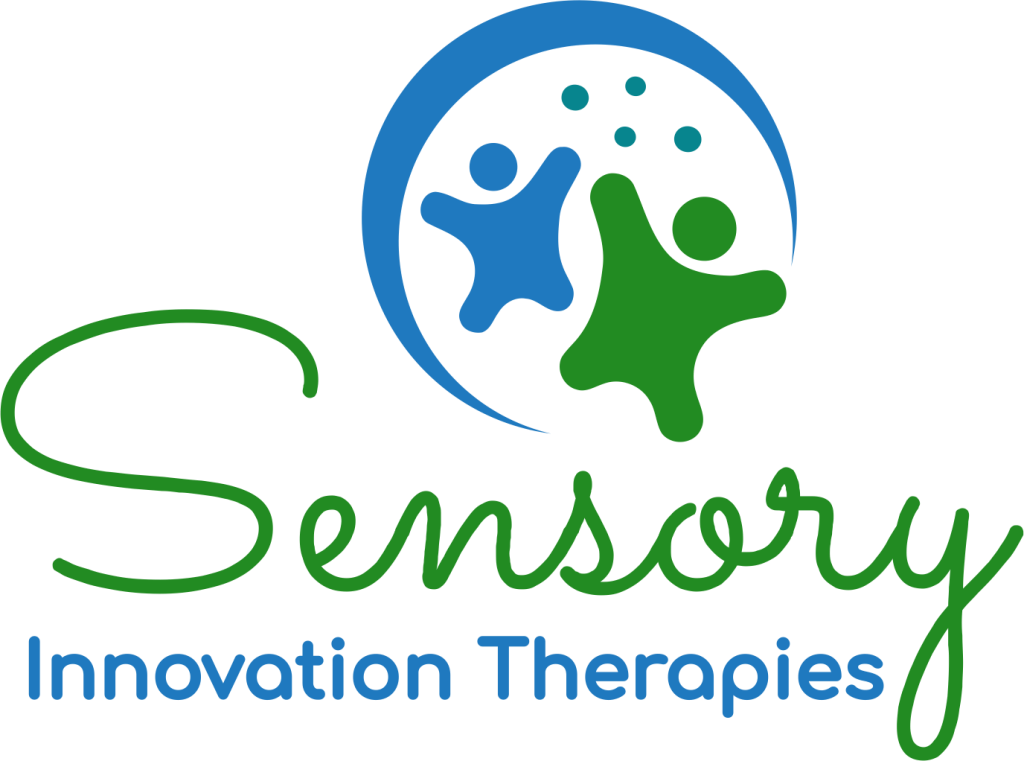COMING SOON Speech Therapy
What SLPs Do
Speech Language Pathology or Speech Therapy is a field in healthcare focused on the assessment and treatment of speech, communication, language, and swallowing disorders. SLPs also provide Augmentative and Alternative Communication (AAC) systems for people who have severe speech and language difficulties, like autism spectrum disorder or progressive neurological disorders.
Speech and communication are crucial for children and adolescent’s daily activities, academic success, and social interactions. Speech involves producing sounds, focusing on articulation, fluency, and voice, while Language is the system of communication, including the rules for combining words and sentences, their meanings, and pragmatics. Speech-Language Pathologists (SLPs) specialize in helping children and adolescents develop these necessary communication skills. For children with severe communication challenges, SLPs also provide Alternative and Augmentative Communication (AAC) methods to support and enhance their ability to communicate. Speech therapy interventions often include play-based activities, language games, and structured exercises depending on the child’s developmental level and specific needs.
The first step would be to schedule a Speech Language pathology evaluation. SLPs will conduct an initial evaluation by gathering medical and developmental information, administering standardized tests, observing interactions, analyzing speech patterns, assessing cognitive-communication skills, evaluating feeding and swallowing if necessary, and considering the need for Alternative and Augmentative Communication (AAC) to develop a personalized intervention plan. Contact us for more information on how to schedule a Speech and Language Pathology evaluation. Schedule a Phone Screening.
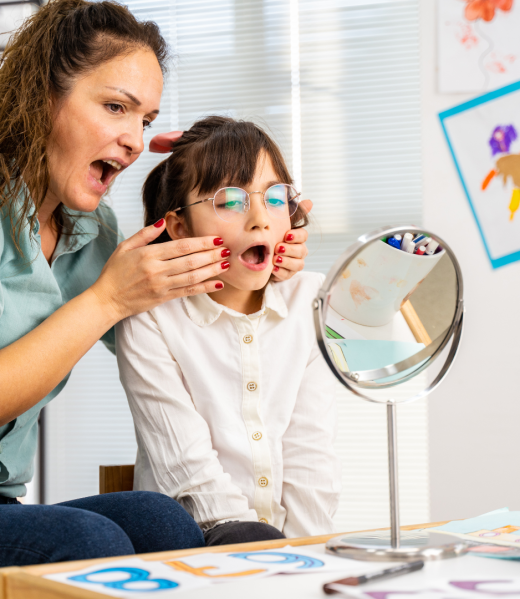
Would your child benefit from our services?
Send us a message to get in touch.
What skills do Speech Language Pathologist Address?
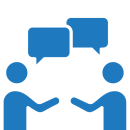
Communication Skills
Helping children and adolescents pronounce sounds clearly (articulation), understand and use spoken and written language better (expressive and receptive language), use words and sentences to express thoughts, improve social language skills for conversations (pragmatics), and manage stuttering (fluency).
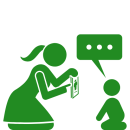
Augmentative and Alternative Communication (AAC)
Providing alternative methods of communication for children who have severe speech and language difficulties. This can include the use of picture boards, communication apps, or speech-generating devices, helping non-verbal children to express themselves effectively.
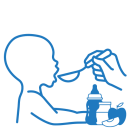
Feeding and Swallowing
Addressing oral-motor problems, aversions to certain textures, or swallowing disorders that affect a child’s ability to eat, chew, swallow, and drink safely.
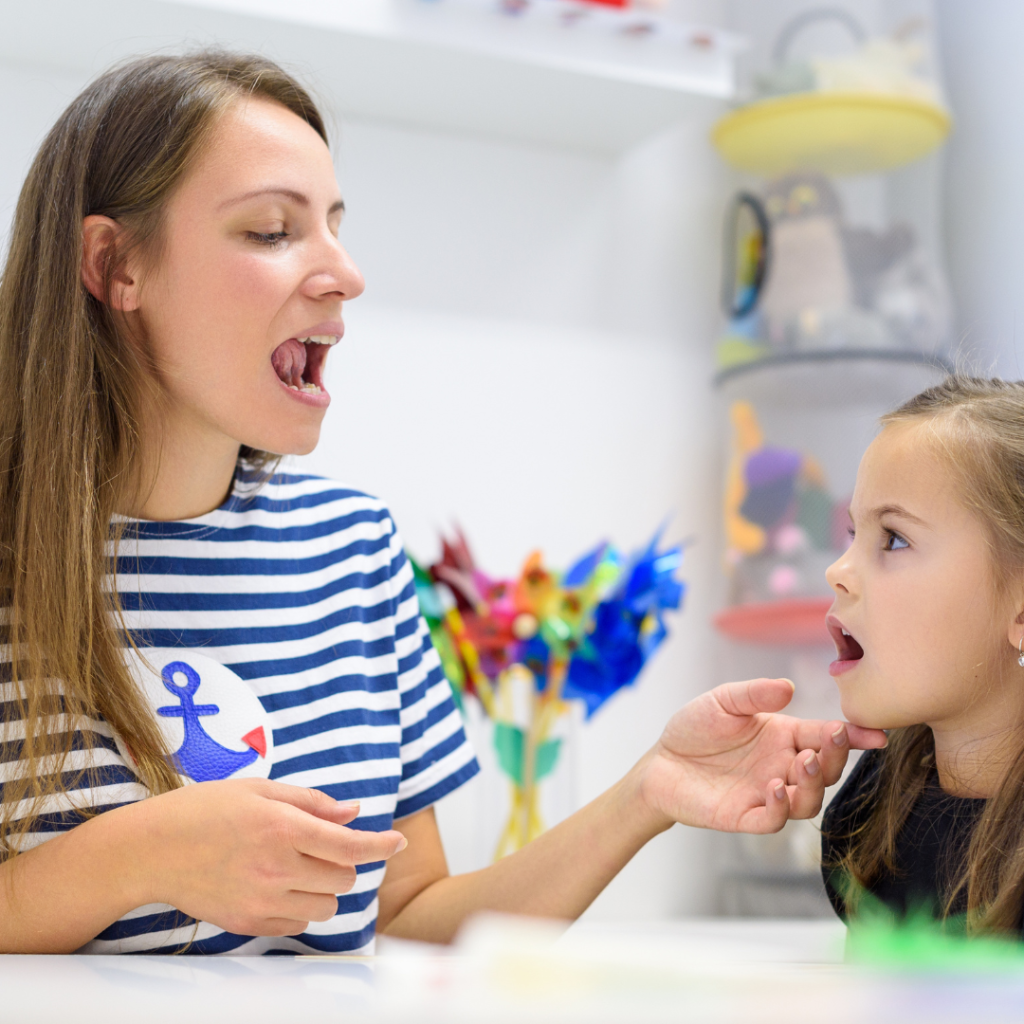
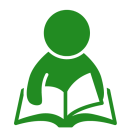
Literacy
Enhancing reading and writing skills, including decoding, comprehension, spelling, grammar, and composition, to support overall literacy and academic success.
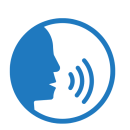
Voice and Resonance
Addressing issues related to voice quality, pitch, volume, and resonance, helping individuals achieve a functional voice, and addressing problems such as hoarseness or loss of voice.
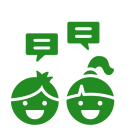
Cognitive-Communication
Improving cognitive-communication skills by enhancing attention, memory, problem-solving, and executive functioning related to communication
Hours
Services are provided during the following hours:
- Mon-Fri: 8:30 AM-6:30 PM
- Saturday: Closed
- Sunday: Closed

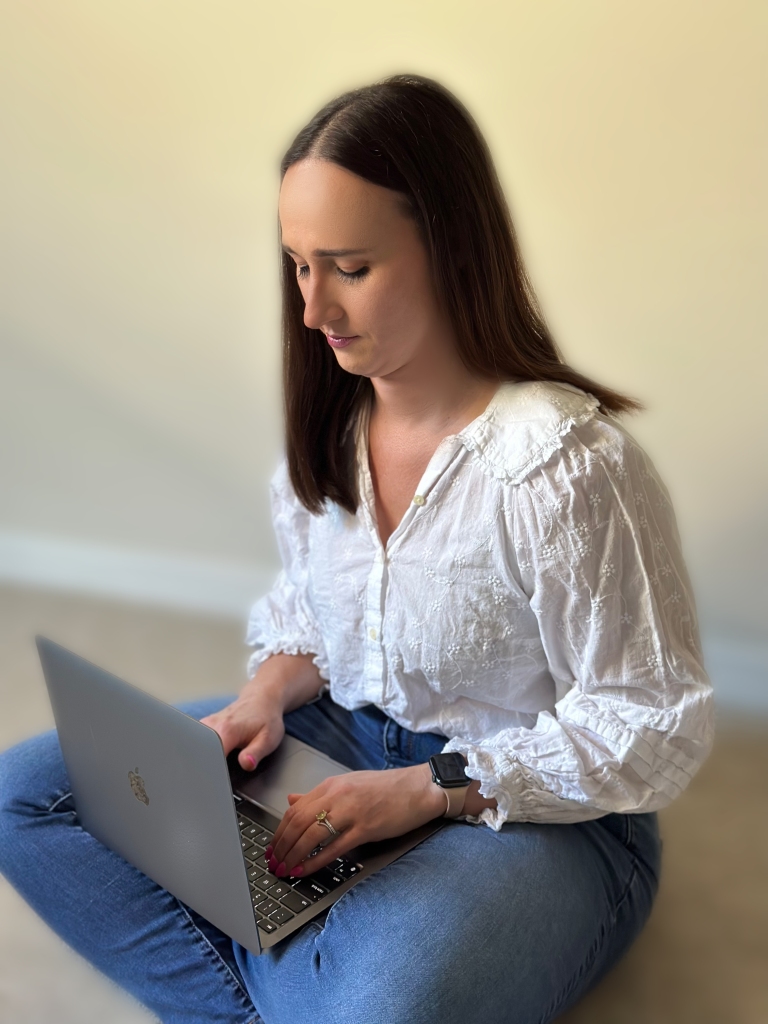
Call for a free screening
Think your child would benefit from occupational therapy services? Call Dr. Leah for a free screening.
